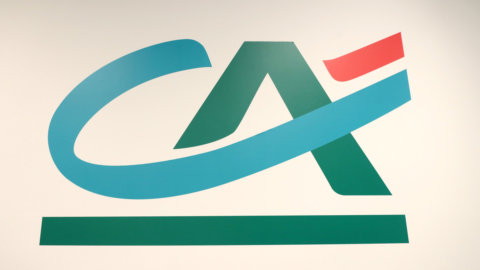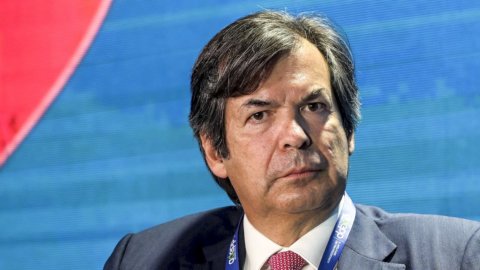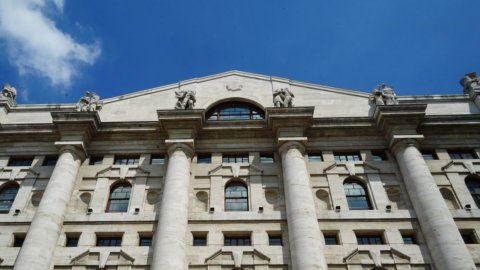“Be prepared for volatility, both up and down.” A note from Ma Jun, the chief economist of the Chinese central bank, raised the attention of the markets. But this morning the parity set for the exchange rate of the yuan is practically unchanged from Friday. However, the Asian stock markets open the week lower: Hong Kong -1%, Shanghai -0,8%. Weak all Asian currencies, down against the dollar. In particular, the fall of the Malaysian ringgit continues (-1,2%).
TOKYO ADVANCES, BUT ABENOMICS FLOPS
The exception is Tokyo (+0,4%), after the awaited publication of GDP data for the second quarter. The Japanese economy contracted between April and June by 0,4%, slightly less than the expected 0,5% but with a clear slowdown compared to the 1,1% of the first quarter. It is probable that, in the face of these numbers, the Bank of Japan will once again revise downwards to 1,5% its growth estimates for 2015, already reduced to 1,7% (from the initial 2%).
The slowdown in consumption was particularly negative (-0,8%). At this point, the markets are betting on new interventions. A new dose of Quantitative easing is not excluded, which however could favor a new devaluation and lower purchasing power for families, affected by the rise in food prices. Easier recourse to fiscal policy measures in favor of families.
The budget in Abenomics, in figures, remains disappointing for now: since December 2012, GDP has grown by 2%, after stimuli equal to 3%. The government has failed to push companies to raise salaries or investments within the country.
The landslide in oil prices continues. This morning Brent traded at 48,1 dollars (-1,4%), Wti just under 42 dollars (-1,2%)
Great tension also on the Brazilian real after yesterday's massive demonstrations against the government.
MARKET MOVERS: THE GERMAN VOTE FOR ATHENS, THE MINUTES OF THE FED
The agreement signed by the Eurogroup in Friday's meeting defused the risk of default in Athens: on Thursday 20 Greece will have the money to repay the 3,2 billion installment of debt to the European Union. But first it will be necessary to overcome another obstacle: the vote on the agreement by the German Parliament, scheduled for Wednesday, a fundamental step also for the Berlin government as well as for the Eurozone. Approval is obvious, but the CDU-CSU, Angela Merkel's party, could record new, massive defections.
The July Fed meeting minutes were released on Wednesday. It will be interesting to see if the debate, on that occasion, also concerned the deterioration of the Chinese situation or if the devaluation took the central bank by surprise. According to Bank of America, the Chinese currency is set to depreciate by 10% by 2016 with a 5-10% impact on already depressed oil prices. In this context, the Fed could be forced to postpone the rate hike.
Today, the performance of the Empire Manufacturing Index will be announced, relating to the economic performance of the Northeastern states.
BUSINESS PLACE -1,9% LAST WEEK, BUT REMAINS AT THE TOP SINCE THE BEGINNING OF THE YEAR
A mixed week for the European stock exchanges which archived their worst week since the beginning of July (-2,8%) under the pressure of the Chinese devaluation. Friday the Eurogroup approved the disbursement of the first 26 billion to Greece, after the Athens Parliament had approved the agreement with the creditors in the morning. Syriza, the party of Alexis Tsipras, has split and early elections seem inevitable.
Milan closes the week with a loss of 1,9%, but since the beginning of the year the Ftse Mib index has recorded a gain of 22% against +12% in Frankfurt and +11% in the Eurostoxx index. For an investor in Euros, only Tokyo (+23%) did better. Surprisingly followed by the Shanghai Stock Exchange (CIS 200 +21%) and that of Moscow (Micex +20%).
Significant losses for many emerging markets: Indonesia and Malaysia -15%. Even worse Brazil (Bovespa -21%) and Türkiye -20%. The spread between Btp and Bund fell below 115 points.
WALL STREET HOLDS UP TO YUAN AND OIL
Since the beginning of the year, in euro terms, the S&P 500 index has gained 10%, the Nasdaq 11%. After the twist of the three-stage devaluation of the renmimbi, US stocks ended the week with a modest rise.
The S&P 500 index recorded a rise of 0,7%, mainly thanks to the rally in the energy sector (+3,2%). The Dow Jones (+0,6%) and, albeit slightly, the Nasdaq (+0,1%) are also in positive territory.
Troubled week for oil. WTI crude fell to a new low at $42,13 a barrel (-4%) under pressure from rising inventories and falling Chinese demand. Conversely, Brent closed just above $49, up for the first time (+0,9%) in seven weeks.
MILAN MEASURES THE DRAGON'S CONSUMPTION HOLDING DOWN
The decline of the yuan, Beijing promises, has now taken place. But analysts are wondering about the effects of the new Chinese reality. The devaluation weighs not so much as the slowdown of the economy, starting with consumption which in recent years has supported the turnover of luxury goods and European cars.
According to Kepler Chevreux, the most exposed European companies are Prada, Richemont, Swatch, among the largest, together with a large number of mid-cap Italian companies: Danieli, Moncler, Tod's and Ferragamo.
Prada (this morning -0,4% in Hong Kong) achieves 15% of its turnover in China against 9% of Hermes and 8% of Lvmh, while Moncler (-4,94% in the week) and Tod's (-5,79 .13%) are both at 8,9%; Ferragamo (the hardest hit with an 11% drop) sells 6% of its total turnover in China, against XNUMX% for Cucinelli.
In industry, Danieli stands out, making 15% of production on that market, while Brembo stops at 5%.
MONTE PASCHI, THE BALANCE NEEDLE OF THE M&A SEASON
At the end of the summer break, a hot season for credit companies opens. At the halfway point of the year, the accounts are sending out comforting signals, starting with the drop in loan adjustments (-18,3%) which made possible a robust increase in profits (over 4 billion, up 17,8%). .
It is on this premise that the hot phase of the M&A between the banks, especially the Popular ones, starts. During the week Banco Popolare (+0,71%) and Bper (+0,47%) recorded a positive performance. In negative ground Bpm (-1,93%).
Stationary Monte Paschi (-0,04%). After the accounts for the second quarter, the bank has overcome the two gaps which made it necessary, according to the ECB, to merge the institution with another partner: the level of capital has returned above the guard level, with a common Tier 1 having arrived at 10,7%. Exposure to just one counterparty, Nomura, also fell to 24,53% of equity. And in Siena the party that hopes to continue the journey in solitude is growing.
SAIPEM HIT BY THE PETROBRAS INVESTIGATION
A tough day ahead for oil stocks as crude oil prices continue to slide. Last week Eni retreated by 3,98%, while Tenaris, supported by the expectation of a strong improvement in the accounts for the next quarter, rebounded by 1,2% (but from the beginning of the year the performance is negative by 3,95% ).
The situation of Saipem is more delicate (-1,2%), which ended up in the sights of the Milan prosecutor's office for an international corruption investigation linked to Petrobras, the Brazilian giant under investigation by the judges of San Paulo.





